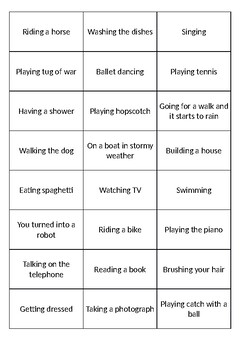

The portion of the short-term disability premiums paid by you with pretax dollars and your employer is taxable. If you and your employer both pay for premiums. You pay for 100% of premiums with after-tax dollars. You pay for 100% of premiums with pretax dollars. Short-term disability is considered taxable income. If you pay all the costs for your premiums with after-tax dollars, then you will not report benefits as income to the IRS. This is also the case if you make payments for your disability insurance policy with pretax dollars. The amount your employer pays for premiums is taxable.

You have to take into account who paid the premiums and how they were paid. The reason is that an insurance company controls the payments. However, this may not be the same timing of your payroll. You will usually get paid every 2 weeks from the insurance company. Generally, the range is 40% to 70% of your lost wages. However, you should give yourself a couple weeks to handle the paperwork. You will need to file your short-term disability claim on the last day of work.

For this, you will need a signed statement. You could get coverage before the pregnancy. An insurance company could extend these timelines if there are complications with the pregnancy. However, if you become pregnant while you have coverage, the insurance usually is for 6 weeks, or 8 weeks if you have a C-section. If you are pregnant before you are enrolled in the policy, you will not be covered. They are diseases or illnesses that you have before you join your employer.Ī pre-existing condition also includes pregnancy. Short-term disability policies usually do not cover pre-existing conditions. Side effects from medicines or medical procedures Your policy sets forth what illnesses and injuries qualify.
Word vs word scenario in inairamce professional#
A doctor or healthcare professional must provide a signed evaluation. Short-term disability insurance requires that you cannot perform your normal job duties. What qualifies for short-term disability? You might want to shop for another policy if it is longer than 14 days. If you purchase your own short-term disability insurance, you should ask about the elimination period. If your illness lasts about a week or so, you may instead want to use your paid time off. For some policies, it can be as long as 180 days. There is an elimination period, which is the time between your injury and when you start to receive your benefit. Your disability payments from the policy will not be immediate. Make sure you send the completed forms to the insurance company in a timely manner to avoid delays. You will also need your doctor to fill out part of the form and sign it. You and your employer must complete forms that provide details about your illness or injury, such as why you cannot work. Reach out to your HR department when you are ready to file a short-term disability claim. You may have to use your sick time or paid time off (PTO) before your disability benefits kick in. You may have to wait a period of time until you can enroll in a short-term disability plan at work. Workers’ compensation is solely for injuries sustained on the job. Short-term disability is not workers’ compensation, either. Long-term disability policies provide coverage for this, which is often for periods like 5 or 10 years. Short-term disability also won’t cover you for prolonged healthcare problems like cancer or the impact of a terrible auto accident. Missing work for a typical illness like a cold or flu doesn’t count. Short-term disability insurance pays part of your salary when you suffer a temporary illness. The following provides a breakdown of how short-term disability works and how it differs from the Family and Medical Leave Act (FMLA). It can be critical in avoiding major financial problems and also allowing for better recovery. Short-term disability (STMD) insurance offers coverage for serious illnesses and injuries. According to the Social Security Administration (SSA), about a quarter of today’s 20-year-olds will suffer a temporary or long-term disability before reaching retirement age. A Federal Reserve report estimates that about 3 out of 10 Americans cannot pay an unexpected $400 bill without using a credit card, bank loan, or help from family or friends.ĭisabilities are more common than you probably think. A temporary disability can put a financial strain on families.


 0 kommentar(er)
0 kommentar(er)
